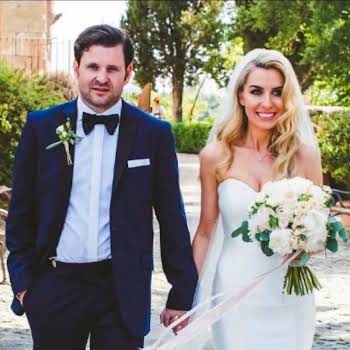
The divorce gender gap: Ireland’s pandemic-related surge in divorce cases
We might be out of lockdown, but many separating couples are still trapped – in the legal process. Catherine Kennedy talks to women navigating the traumatic business of divorce.
Across the country, thousands of couples are waiting for the divorce legal process to end and their lives to begin. Caught in a pandemic-related surge in divorce cases, they have yet to get closure. Lockdown took its toll. Ciara*, 38, from Dublin, was married for ten years. “I didn’t realise how much the social wheel kept the marriage going until we went into lockdown. We have the same friends from school and we hung out together all the time. When that was taken away from us, we had nothing left. We had to face the truth, and that was very uncomfortable.”
For others, decamping to the country gave them a new perspective. Maggie*, 44, is a mother of two from Mayo. “I went home for Christmas and when we went back into lockdown again in January, I stayed on with the children while my husband went back to Dublin for work. That time away from him really made me reassess. I realised just how unhappy I was. I couldn’t go back to the marriage, I just couldn’t.”
The long legal road
For those brave enough to leave, navigating the divorce legal system is daunting. Paula Cullinane is a family law solicitor with O’Donnell Murray Solicitors in Dublin. “Marital breakdown can have a crushing effect on a woman’s confidence and when a woman comes to me, she is often quite fragile.” Some women are more vulnerable than others. “If a woman has spent ten or 15 years in the home, it is going to be very difficult for her to get back into the workforce. The childcare bill is too high.” Others who go 50/50 on everything with their husbands, including childcare, also face challenges. “They may have got used to a certain lifestyle that can’t continue,” says Paula. “The finances have to be cut 50/50 too.” While many women will fight for the family home for the sake of the children, the elephant in the room is that they often cannot afford to live there. Others are also caring for elderly parents. “I see women in midlife, and divorce is part of a crescendo of events,” says Paula.
While many women will fight for the family home for the sake of the children, the elephant in the room is that they often cannot afford to live there.
Money talk
It can be surprising how little some women know about the family finances. “Some women have an idea what their husbands earn,” says Paula, “but they might not know about the large bonuses or the extra pay-outs. Others find out about debts and loans.” If she has any advice for women, it is this: “Talk about money from the very beginning. It’s a fraught topic, but ask yourself this: If you can’t talk about it, what else can’t you talk about?” She meets women who feel they are not entitled to their husband’s money, despite the fact that they have facilitated their husband’s career growth, because they didn’t earn it themselves. “These women are often highly educated in their own right. I wish more value was placed on work in the home.”
Getting women to stand up for themselves is crucial. “I meet some women who try to fix it for their husbands. I hear, ‘Well, he won’t like that’. Or ‘That will suit him’, and it’s my job to say, what suits you?” Others need to be educated about pensions. “Many women don’t have one. Or they don’t think they are entitled to their husband’s. But women are living longer than men.”
Divorce is still, after all these years, taboo. “As a society, we don’t talk about it enough. We haven’t moved on as much as we think we have and people still feel stigmatised.” While mediation is considered the least costly approach, it’s not for everyone. “If you are smart with money and a fighter, I would say go for it,” says Maggie, “but I wasn’t able to hold my own in the room. I was getting talked into things I didn’t want.” She decided on a collaborative law approach, which resulted in a much fairer deal.
Whatever path a woman chooses, it is often long and torturously slow. “Sometimes I think it will never end,” says Ciara, who is two years into her divorce proceedings, with no end in sight. “It takes weeks for solicitors to get back to each other. Months to organise a meeting.” Then there is the expense. “Some solicitors charge €400 an hour,” says Ciara. “I still can’t believe that.” It’s easy to get consumed. “Don’t,” says Maggie. “Talk to a couple of good friends and leave it at that.” But it is a process. “Where you are at the beginning is not where you are at the end,” says Maggie. “I went in very weak. I was bamboozled by everything and would have agreed to anything. It took me a while to realise that I needed to move myself up the list – not just for me, but for my kids.”
Working together
The hardest part for most people is living together throughout the divorce negotiations. “My ex- husband had nowhere else to go,” says Maggie. “Rents are hell.” Many well intentioned parents put on a front for the children at emotional cost. Caoimhe Nic Dhomhnaill is a clinical psychologist and a specialist in child and adolescent psychology. “Where possible, be truthful with your children and give them age appropriate information. They probably know more than you think they know. If they intuit that something is not quite right and you deny them the reality of this, they learn not to trust their instincts.” With many years’ experience in the courts, her advice is simple: “If at all possible, avoid hostile court battles. It is not separation per se that has adverse effects on children, it is conflict. Even an agreement that you can only begrudgingly accept will probably be better than any eventual court ordered outcome, and much less costly financially and emotionally.” It does end. “I’m a nicer person and a better parent,” says Maggie. “So is my ex-husband. But most of all, I wake up in the morning and I am happy.”

GET MONEY SAVVY
Find out about the family finances. Ask the necessary questions. Call in favours and contacts for advice. Get your head around tax brackets and credits. Detail a complete picture of what you need to run the home and meet the children’s essential needs. Keep crunching the numbers. Beware the pre-nup: most agreements are not recognised in Ireland as being legally binding. Courts will consider them, but it’s complicated, with changing life circumstances, such as having children, playing a huge part in the decision-making process.
KIDS FIRST
Simplify decisions by putting yourself in your children’s shoes. What do they need most of all? You know the answer.
PICK YOUR BATTLES
Family law is lose-lose, not win-lose. Stay with the big picture. Work out what you need to make a stand on and let the little details go.
KEEP THE LINES OF COMMUNICATION OPEN
You will have to co-parent with your ex, so you will have to learn how to talk to each other. Take it slowly. Use I statements, not you statements. Give each other time to reflect back. Take time-outs if necessary. The legal tone is adversarial so you will have to work hard to counteract that. It’s tempting to lapse into silence, but this will only plunge you both into paranoia and overthinking. Keep explaining your position and keep trying to see their point of view. Remember you are both processing financial and emotional loss. This takes time.
PRIORITISE SELF-CARE
Go away with girlfriends. Take baths. Go for long walks. Find the thing that releases the stress and keep doing it.
*Names have been changed. Photography by Matthew Henry on Unsplash. This article originally appeared in the Autumn 2022 issue of IMAGE Magazine.























